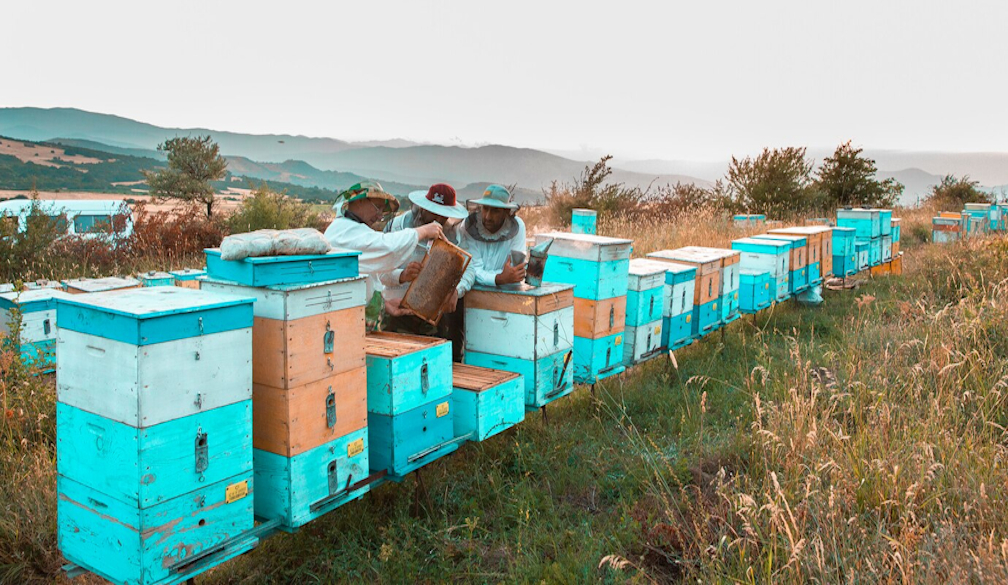Choosing a career? These jobs won't go out of style
- Written by Lisa Denny, Research Fellow - Institute for the Study of Social Change, University of Tasmania
Sensationalist claims that 40% of jobs in Australia won’t exist in the future are unhelpful for young Australians thinking about entering the workforce. The reality is some jobs will no longer exist, new jobs will be created and most jobs will undergo some form of transformation. The skills we need for work are changing, but young Australians can plan for these changes.
Fears of automation and artificial intelligence (AI) wiping out future work are well founded – new technology is changing the way we work. But as the current workforce grows up alongside an ageing population, future generations will have many job opportunities, if they acquire the right skills.
Jobs of the future
The prospect of having a single occupation for life is becoming increasingly unlikely. Today’s 15 year-olds are likely to have 17 changes in employers across five different careers. And for three in five young Australians with a post-school qualification (such as a degree or vocational qualification), less than half are able to secure more than 35 hours of work per week.
When considering which career path to follow, young Australians should be mindful that the jobs at risk are those which have high levels of routine, and repeatable and predictable processes requiring precision. These include administrative and clerical jobs, such as working as a receptionist or data entry clerk. Automation or AI will replace these jobs, if it hasn’t already.
Read more: Three things high school graduates should keep in mind when they have their ATARs
Non-routine jobs which need human problem-solving, creativity, adaptability, flexibility, physical dexterity, and communication skills will be the jobs of the future. So will jobs requiring physical proximity and interpersonal skills. Examples include engineering, design, construction, education, health services and care work.
The economy is undergoing an industry restructuring in response to the Fourth Industrial Revolution. This is the name given to a combination of technological mega-trends happening all at the same time (for example, the internet of things, artificial intelligence, automation and robotics, digital disruption and so on). Significant economic, demographic and social shifts are happening at the same time.
As this change happens, the prospect of polarisation of the workforce is a looming concern for young people. “Polarisation” is the hollowing out of the labour market: a decline in the share of mid-level skilled jobs considered “entry level” for young Australians. This will mean reduced opportunities for young people to enter the workforce, and limited opportunities for upward career progression from lower-skilled jobs.
Which industries show growth?
The Australian economy has shifted from one which produces goods to one which services people. Almost 80% of the workforce is employed in the services industries.
The Department of Jobs and Small Business projects that over the five years to May 2023, employment will increase in 17 of the 19 broad industry sectors in Australia. And it will decline in two: agriculture, forestry and fishing; and wholesale trade.
Almost two-thirds of employment growth is projected to be in four sectors: health care and social assistance; construction; education and training; and professional, scientific and technical services. Jobs will exist for people with the skills to fill those jobs.
New jobs are projected to be created across a range of occupations. Aged and disabled care, registered nursing, child care, software and applications programming, and waiting are the top five areas of growth.
But employment in five broad occupation groups is also projected to decline: personal assistants and secretaries, office managers and program administrators, machine and stationary plant operators, farmers and farm managers, and clerical and office support workers are likely to be replaced by automation or AI.
Skills young people can learn now
Achieving a university degree no longer automatically means a graduate will get immediate and meaningful employment. The youth unemployment rate for graduates is increasing at a greater rate than for those without a tertiary qualification. According to the Foundation for Young Australians, it now takes on average 4.7 years for a person to transition from full time education to full time employment.
Read more: Graduate employment is up, but finding a job can still take a while
Research from the Foundation for Young Australians found there are four key factors which can accelerate the transition from education to full time work:
an education that builds transferable skills such as problem-solving, communication and team work
being able to undertake relevant paid work experience
finding employment in a sector which is growing
an optimistic mindset.
Employers of technical and trade workers still place the most emphasis on job-specific skills, but across all jobs employability skills are the most important. Employers look for communication skills above all other skills, followed by organisational skills, writing, planning and detail orientation, team work and problem-solving. Young people will need to make sure they also have transferable skills such as digital literacy, critical thinking and creativity.
The NSW government challenged a group of researchers to identify what today’s kindergarteners will need to survive and thrive in the 21st century. The report says developing deep knowledge and specialist expertise over time is critical.
Employability skills such as problem-solving and critical thinking are considered generic, and are likely to also be job-specific and not necessarily transferable. For example, problem-solving skills will be very different for a mining engineer to those required by a kindergarten teacher. These “generic skills” need to be learned in context.
Read more: Hints, tips and pitfalls for graduates in getting their first job
The Australian Industry Skills Committee has also developed a practical resource that describes the mega-trends impacting Australia’s economy and society, scenarios for the future and the impact on work and skills. It may benefit parents, teachers, policy-makers and even forward-thinking teens to read about these trends.
Lisa Denny does not work for, consult, own shares in or receive funding from any company or organisation that would benefit from this article, and has disclosed no relevant affiliations beyond their academic appointment.
Authors: Lisa Denny, Research Fellow - Institute for the Study of Social Change, University of Tasmania
Read more http://theconversation.com/choosing-a-career-these-jobs-wont-go-out-of-style-111425





















